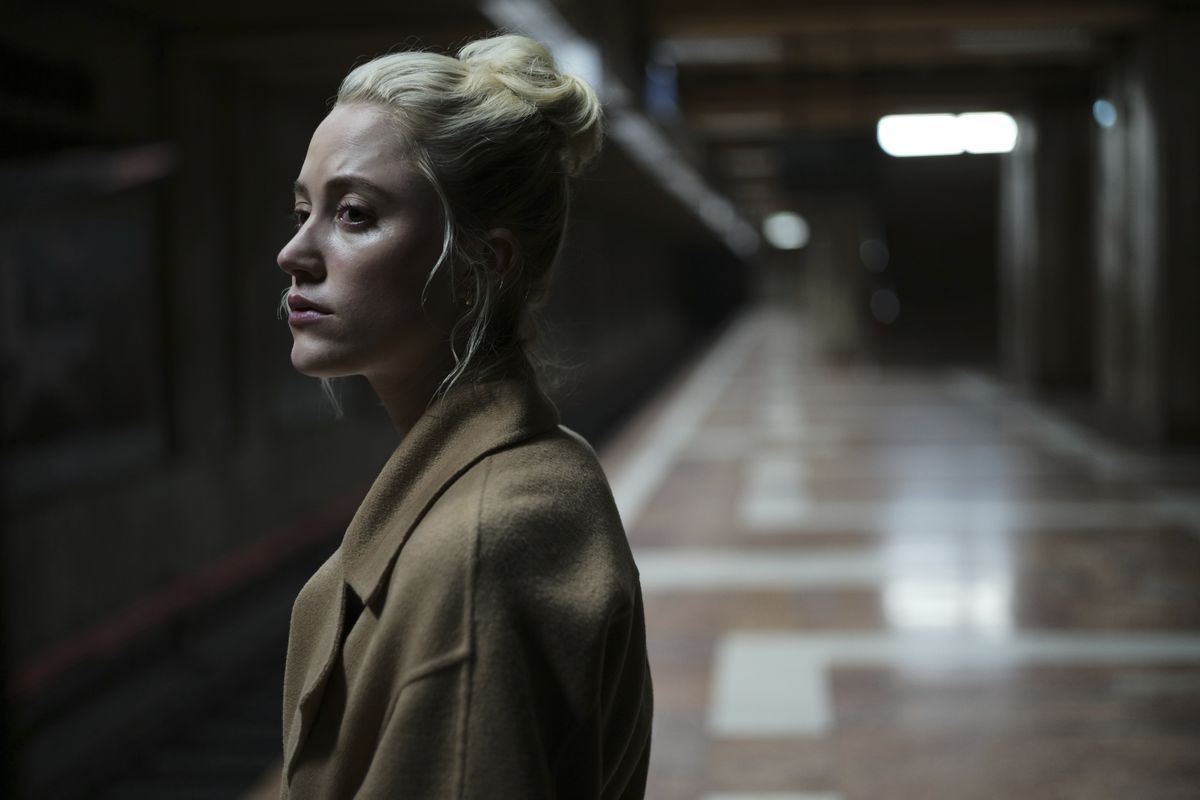Review: ‘Watcher’ is a well-crafted voyeuristic thriller

In Chloe Okuno’s stylish debut “Watcher,” the title refers not just to one person, but two, when the watched becomes the watcher, the stalker and stalked swapping places throughout the course of this chilly psychological thriller. Working in the vein of 1970s-style horror, Okuno’s “Watcher” is in dialogue with films like Roman Polanski’s “Repulsion” and “Rosemary’s Baby,” nods to Andrzej Zulawski’s “Possession” with its foreboding European setting and features a Hitchcock blonde in heroine Julia (Maika Monroe).
But those films about vulnerable women caught in voyeuristic traps were all directed by men, and with Okuno, a female writer/director, telling the story, it’s a very different result, one that’s emotionally and ethically complex but undeniable in its bold clarity. Newlyweds Julia and Francis (Karl Glusman) arrive in Bucharest, Romania, ready to start a new chapter in a new city. Francis, who is part Romanian, has a high-powered advertising job, but Julia, an erstwhile actress, doesn’t have much to do.
She wanders the city, practicing her halting Romanian in coffee shops and attempting to sightsee alone. As a serial killer known as “the Spider” slays the women of Bucharest, slashing their throats, Julia realizes that she’s under surveillance, and not just from the taxi drivers who call her “beautiful.” Through the oversize picture windows in their apartment, she notices someone (Burn Gorman) across the street watching her, and suddenly he seems to be everywhere.
The brilliant thing about Julia in “Watcher” is she does everything right, and yet, it’s maddening, because it doesn’t protect her. She tells her husband as soon as she feels uncomfortable about this man watching her and reports the strange incidents when he follows her to shopkeepers and the police. But her actions, to the men around her, seem strange and sketchy. Francis just barely refrains from calling her crazy, though he refers to her experiences “a fantasy,” and capably rationalizes this stranger’s behavior. All Julia has the agency and ability to do herself is simply watch him back.
Okuno’s script, which is based on a screenplay by Zack Ford, is pointed, deliberately so, and there’s no mistaking what she’s trying to say about women’s intuition, the reluctance of men to believe them and the systems of power that fail to protect the vulnerable. She beautifully uses space in her cinematic storytelling, as well.
The apartment’s glass windows become a prison panopticon, their visibility stripping the safety from Julia’s intimate domestic space. The transparency of the windows are juxtaposed against the opaque wall she shares with her neighbor, and only friend, Irina (Madalina Anea), through which sound travels, transmitting muffled, mysterious information.
“Watcher” is a slow burn, but like its leading lady, it’s restrained and elegant. Monroe’s performance is less than operatic, but the strain of containing her fear and maintaining her composure is palpable. Combined with the intelligent use of point-of-view shots (the cinematographer is Benjamin Kirk Nielsen), there is a visceral sense of the genuine, and specifically feminine, fear that Julia feels, whether or not it’s founded in reality.
But the greatest trick that Okuno pulls off in “Watcher” is leading the audience to question our own intuition, and interpretation of events, of what we’ve seen and heard. It throws the viewer off balance just enough so that the finale is truly shocking but rendered with the utmost control and refinement of style and emotion. This beautifully crafted jewel of a throwback thriller signifies Okuno as a talent to watch, but, furthermore, it probes the viewer to question what, and who, we choose to believe and why.